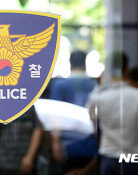[Editorial] What About the Real Economy?
[Editorial] What About the Real Economy?
Posted May. 06, 2009 08:24,
The domestic stock market and currency have gradually rebounded. The benchmark KOSPI surpassed 1,400 Monday, recovering to the level recorded before September last year when Lehman Brothers bankruptcy led to the global financial crisis. The KOSPI has risen 36.3 percent (372 points) this year from a year-low posted March 3 and rebounded a whopping 48.9 percent (459 points) from last years annual low recorded Oct. 24. As uncertainty has significantly subsided in the foreign exchange market, the won has recovered to 1,270 to the dollar from 1,570 two months ago. Certain experts, however, say the won has surged too quickly.
The stock market rally has had a positive influence on the overall economy, improving corporate value, finance structure and funding. Investor confidence has also grown as a result. The rapid rebound of the KOSPI has put pressure on the market, but along with Koreas two straight months of record trade surplus, it is a good signal forecasting Koreas recovery from the economic crisis. Moreover, the recent rallies in global stock markets, though slower than Koreas, have also relieved pressure on the Korean economy.
The domestic financial market has significantly stabilized since foreign investors, who have high expectations for a Korean recovery, have regained confidence in the Korean market. Koreas export-driven large corporations have been buoyed by the relatively weak won and their ceaseless efforts to open up new markets. Berkshire Hathaway Chairman Warren Buffet says he will make additional investments in Korea, citing the strong competitiveness of the Korean economy, especially the strength of major manufacturers. Koreans need not be overly pleased with Buffets decision, but should also not belittle his opinion since Koreas economy is significantly affected by global factors.
Unlike the bustling financial sector, Koreas real economy comprising consumption, investment and employment has not come out of hibernation. Spreading the growth momentum of the financial market to the real economy is critical. The government needs to inject the supplementary budget and implement deregulation as soon as possible and accelerate restructuring to raise national competitiveness. At the same time, other required measures must include further development of technologies, improvement of quality, and stabilization of labor-management relations to maintain competitiveness at a time when Korean exporters can no longer benefit from a weaker won.
Political and social support is needed to help the economy to get back on track. The ruling and opposition parties should strive to pass more bills contributing to investment, consumption, job growth and new business opportunities, instead of constantly fighting each other. Rash optimism should be avoided but Koreans should also not get confused by those who exaggerate economic and social uncertainty to achieve their own political goals. Certain ill-intentioned people since last year have spread malignant rumors that Korea will face another economic crisis. Their arguments have been proved wrong, however.







